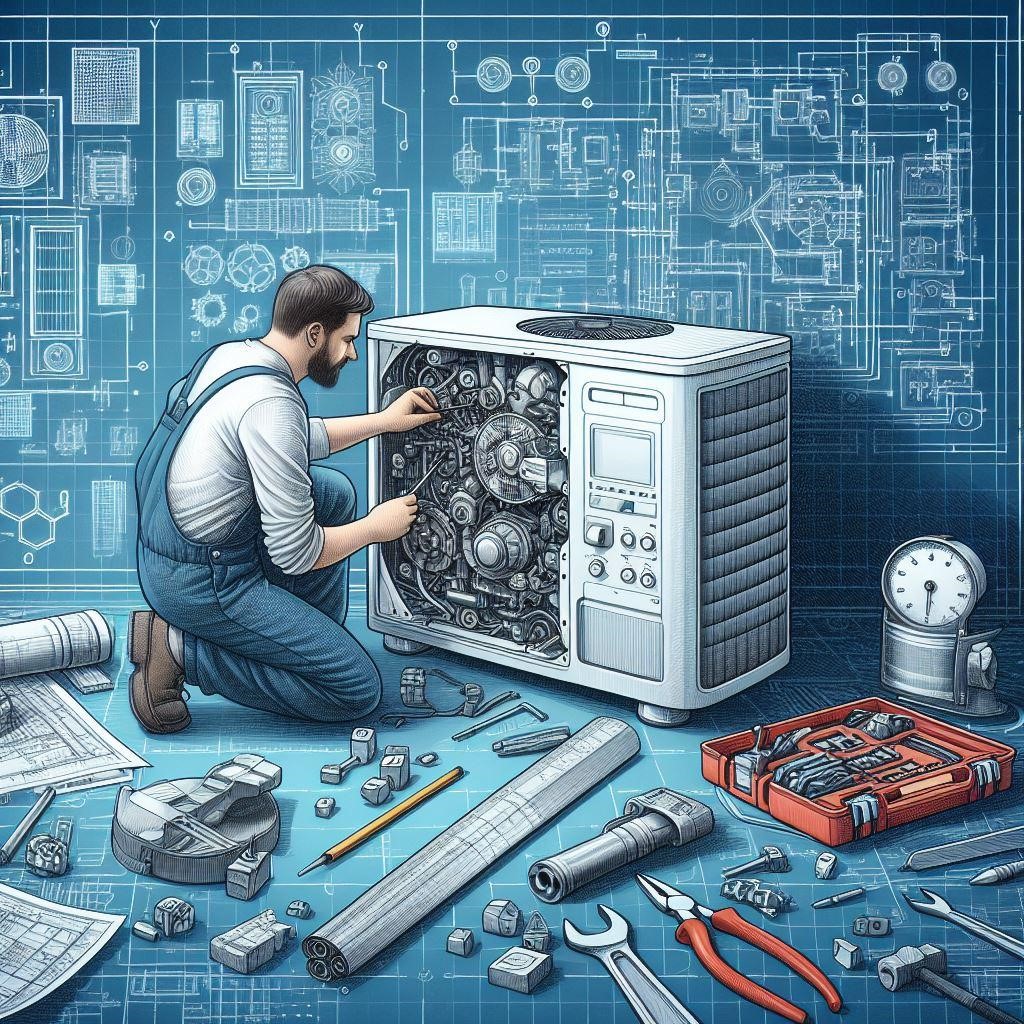When it comes to maintaining a comfortable indoor environment, many people use the terms “HVAC” and “air conditioning” interchangeably. However, these two systems have distinct differences in their components, functions, and applications. Understanding the nuances between HVAC and air conditioning can help you make an informed decision when upgrading or installing a climate control system for your home or building.
HVAC, which stands for Heating, Ventilation, and Air Conditioning, is a comprehensive system that encompasses a range of equipment and technologies to regulate temperature, humidity, and air quality. In contrast, air conditioning (AC) is a specific subset of HVAC, focused solely on cooling the air and removing excess humidity.
Table of Contents
ToggleWhat are the Differences?
The primary distinction between HVAC and air conditioning lies in the number and type of components involved. HVAC systems typically include a furnace or boiler for heating, an air conditioning unit for cooling, and a network of ductwork to circulate the conditioned air throughout the space. This integrated approach allows HVAC to provide a complete climate control solution, addressing both heating and cooling needs.
On the other hand, an air conditioning system consists of a single, standalone unit responsible for cooling the air. While it can effectively lower temperatures and reduce humidity, an AC system does not have the heating capabilities or ventilation functions of a full HVAC setup.
Functional Differences
The broader scope of HVAC systems means they can perform a wider range of climate-related tasks compared to their air conditioning counterparts. HVAC systems are designed to not only cool the air but also heat it, control humidity levels, and ensure proper air circulation and ventilation.
This versatility makes HVAC systems well-suited for both residential and commercial applications, where maintaining a comfortable, healthy indoor environment is crucial. HVAC can automatically adjust temperature, humidity, and air quality to meet the specific needs of a space, creating a more comprehensive and customizable climate control solution.
In contrast, air conditioning systems are primarily focused on the cooling function, making them a more limited solution for overall climate control. While they can effectively lower temperatures and reduce humidity, AC units do not offer the heating, ventilation, and air quality management capabilities of a full HVAC system.
Application Differences
The differences in complexity and functionality between HVAC and air conditioning systems also influence their typical applications and use cases.
HVAC systems are commonly found in larger residential homes, commercial buildings, and industrial facilities, where the need for comprehensive climate control is more pronounced. These integrated systems can handle the heating, cooling, and ventilation requirements of sizeable, multi-room spaces, ensuring optimal comfort and indoor air quality.
Air conditioning systems, on the other hand, are often better suited for smaller, single-room applications, such as individual apartments, office spaces, or homes without existing ductwork. These standalone units can provide efficient cooling for localized areas, making them a practical choice for spaces where a full HVAC system may not be necessary or feasible.
Choosing the Right System for Your Needs
When it comes to selecting the appropriate climate control solution for your home or building, it’s crucial to understand the key differences between HVAC and air conditioning. The choice between the two will depend on factors such as the size and layout of the space, your specific heating and cooling requirements, the existing infrastructure, and your overall budget.
For comprehensive climate control that addresses heating, cooling, and ventilation needs, a full-scale HVAC system is often the optimal solution. However, if your primary focus is on cooling and you have a smaller, more localized space, an air conditioning unit may be a more practical and cost-effective choice.
Ultimately, the decision should be made in consultation with a qualified HVAC professional, who can assess your unique requirements and recommend the most suitable system to maintain a comfortable, energy-efficient, and healthy indoor environment.
Understanding the Nuances
While HVAC and air conditioning may seem like interchangeable terms, it’s essential to recognize the distinct differences between these two climate control systems. HVAC offers a more comprehensive approach to managing temperature, humidity, and air quality, while air conditioning is a specialized solution focused solely on cooling.
By understanding these nuances, you can make an informed decision about the best system to meet the specific needs of your home or commercial space, ensuring optimal comfort, energy efficiency, and indoor air quality for years to come.

